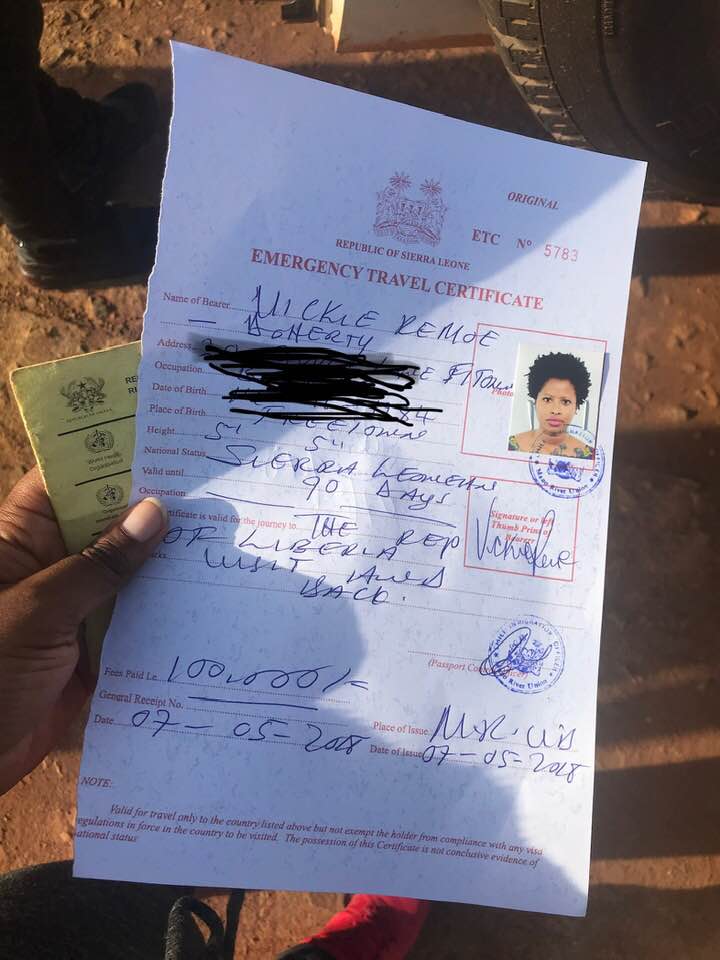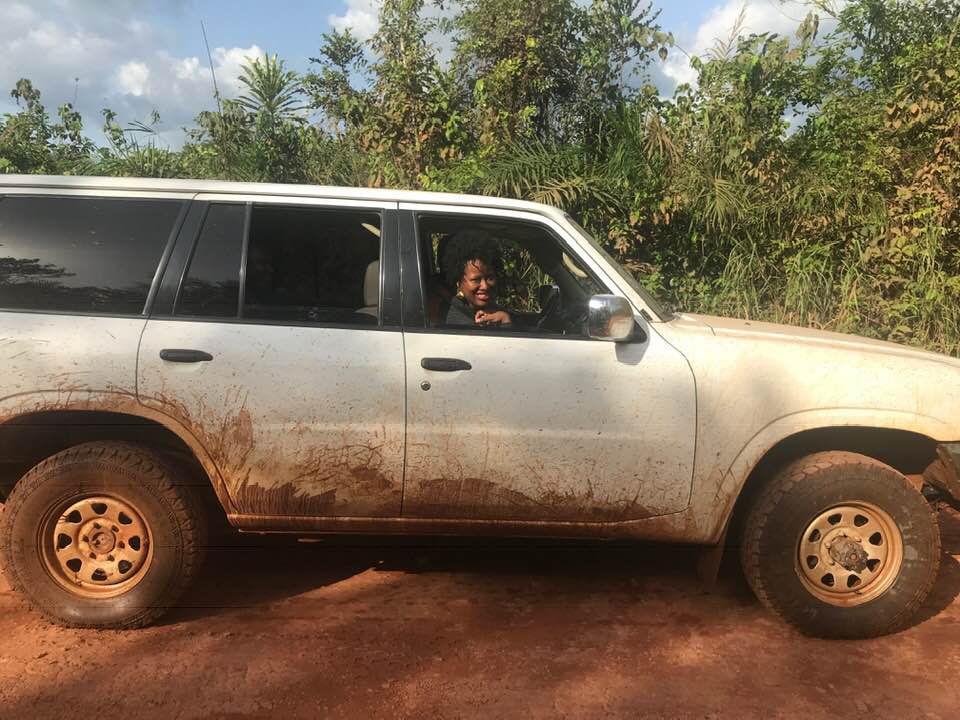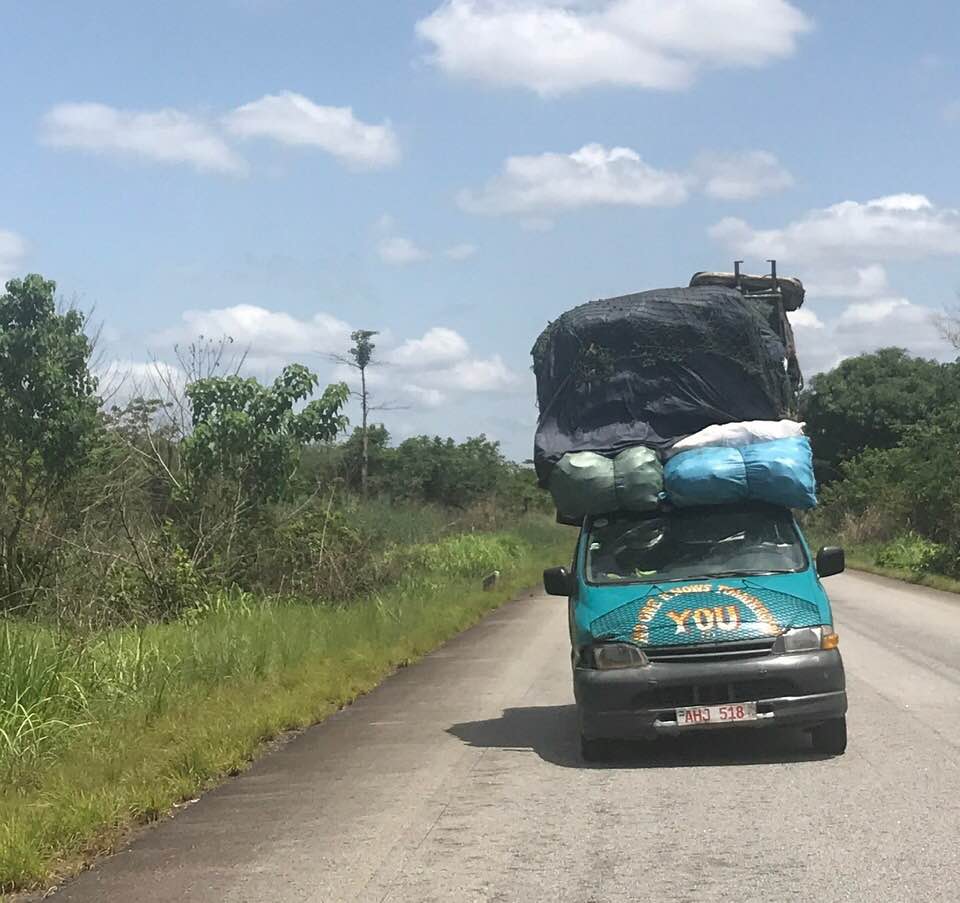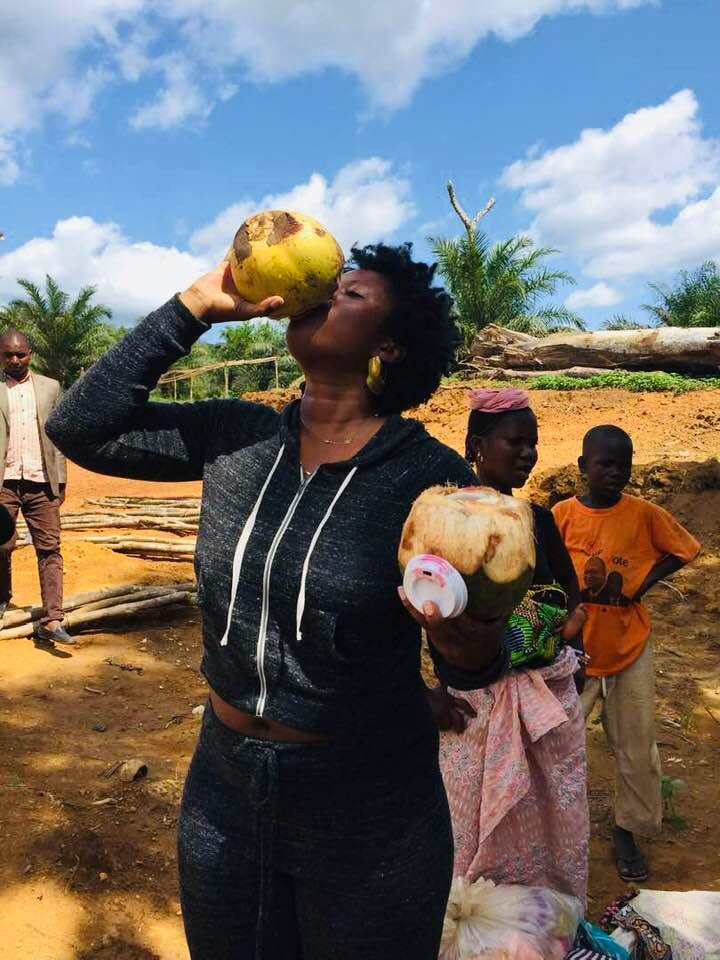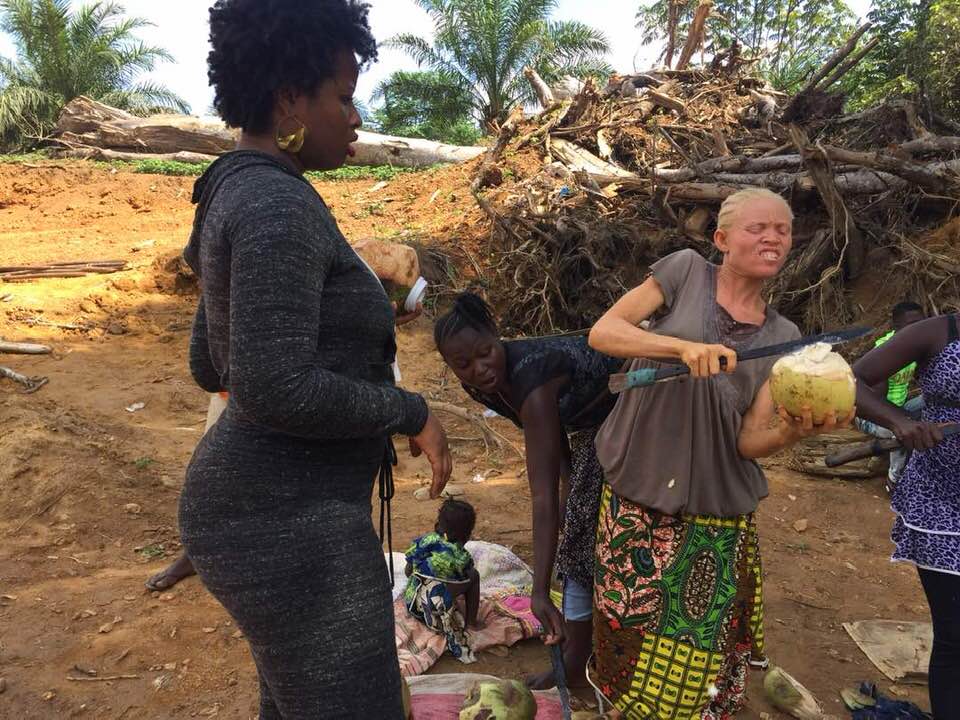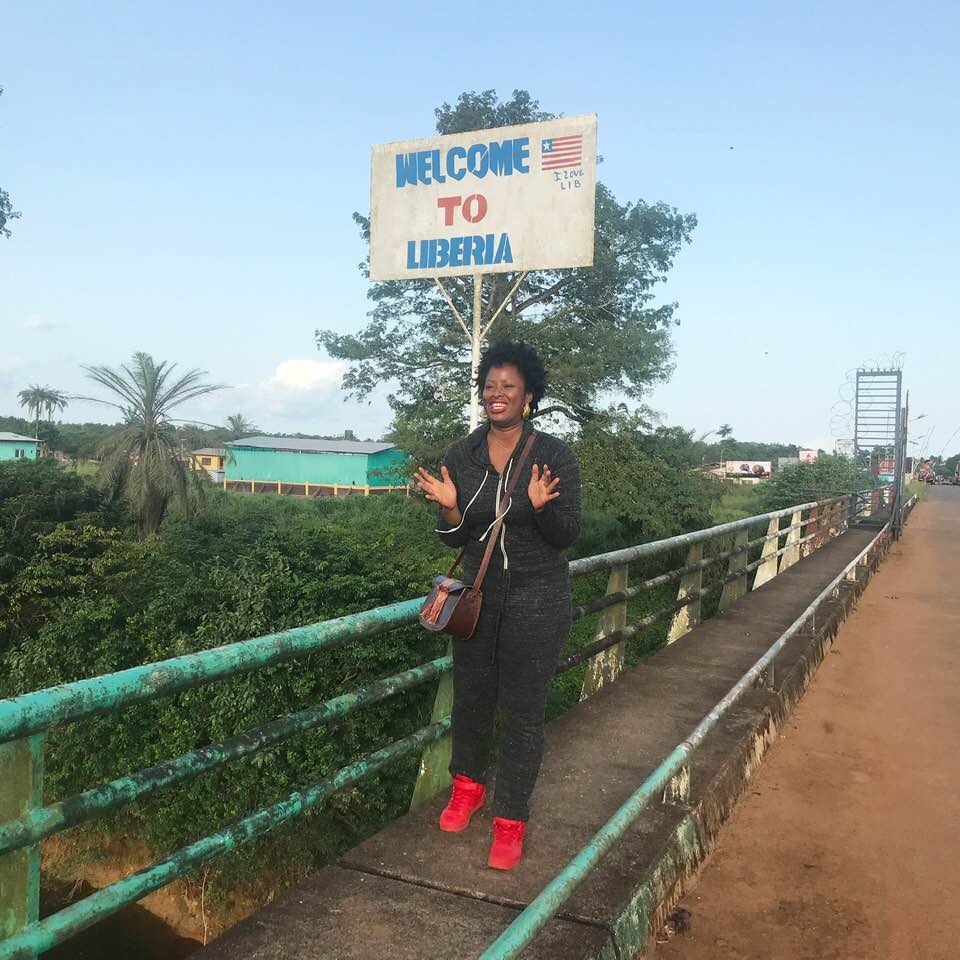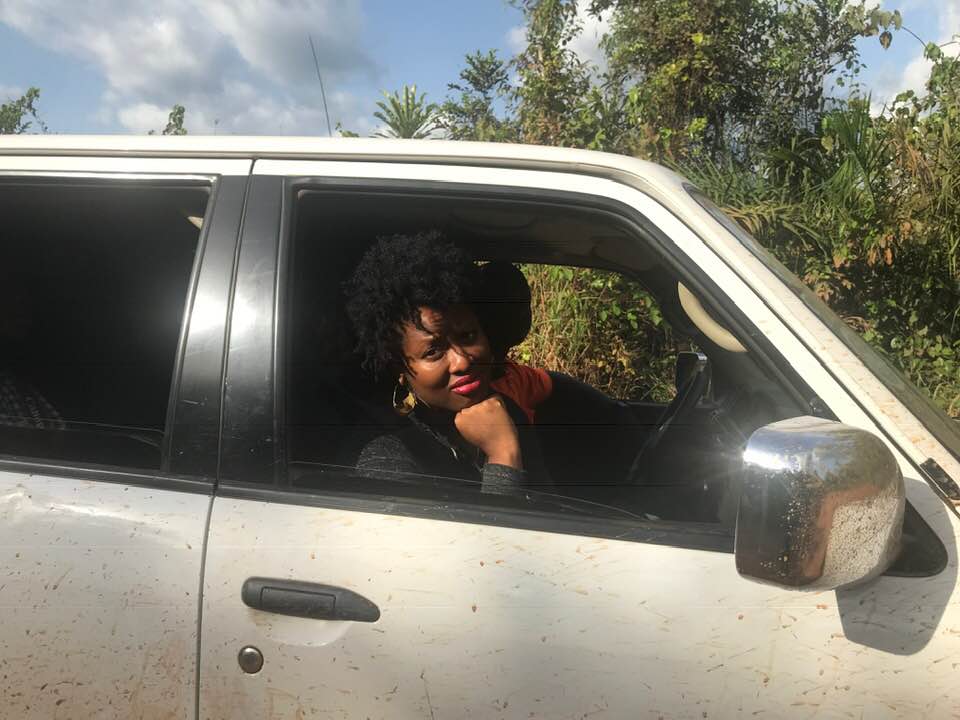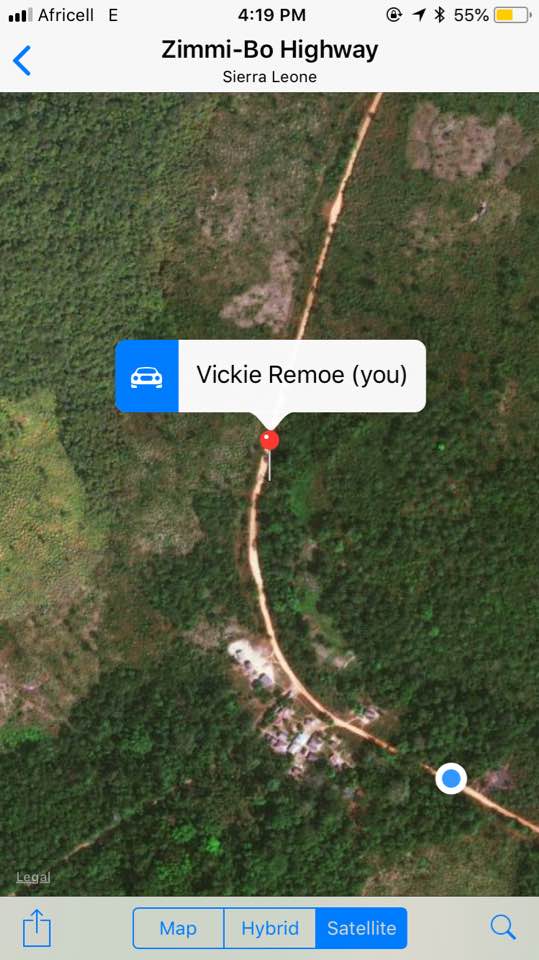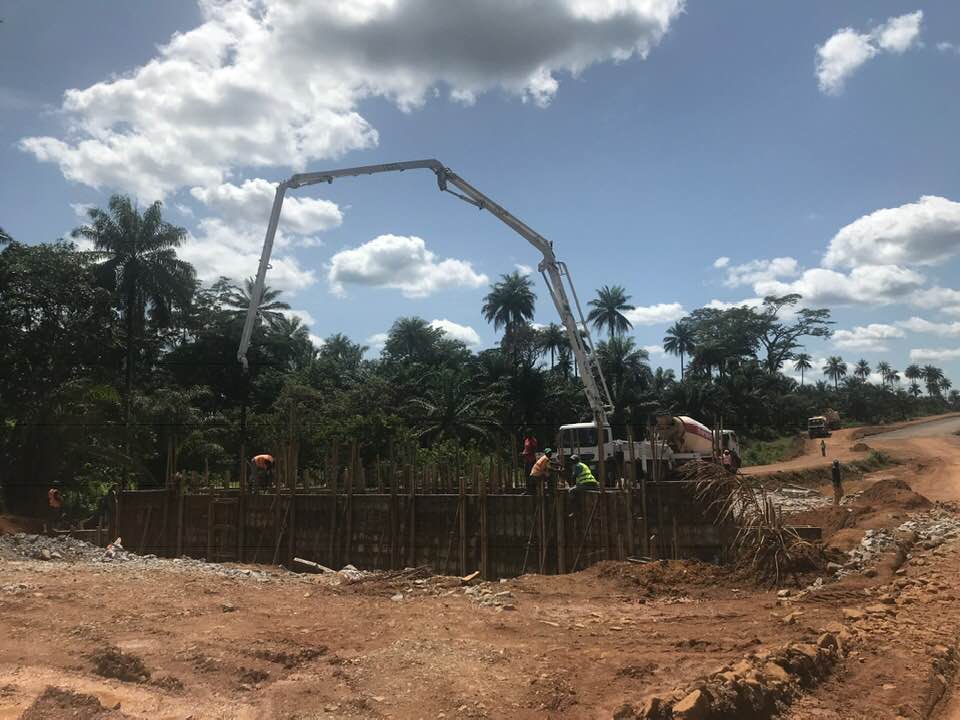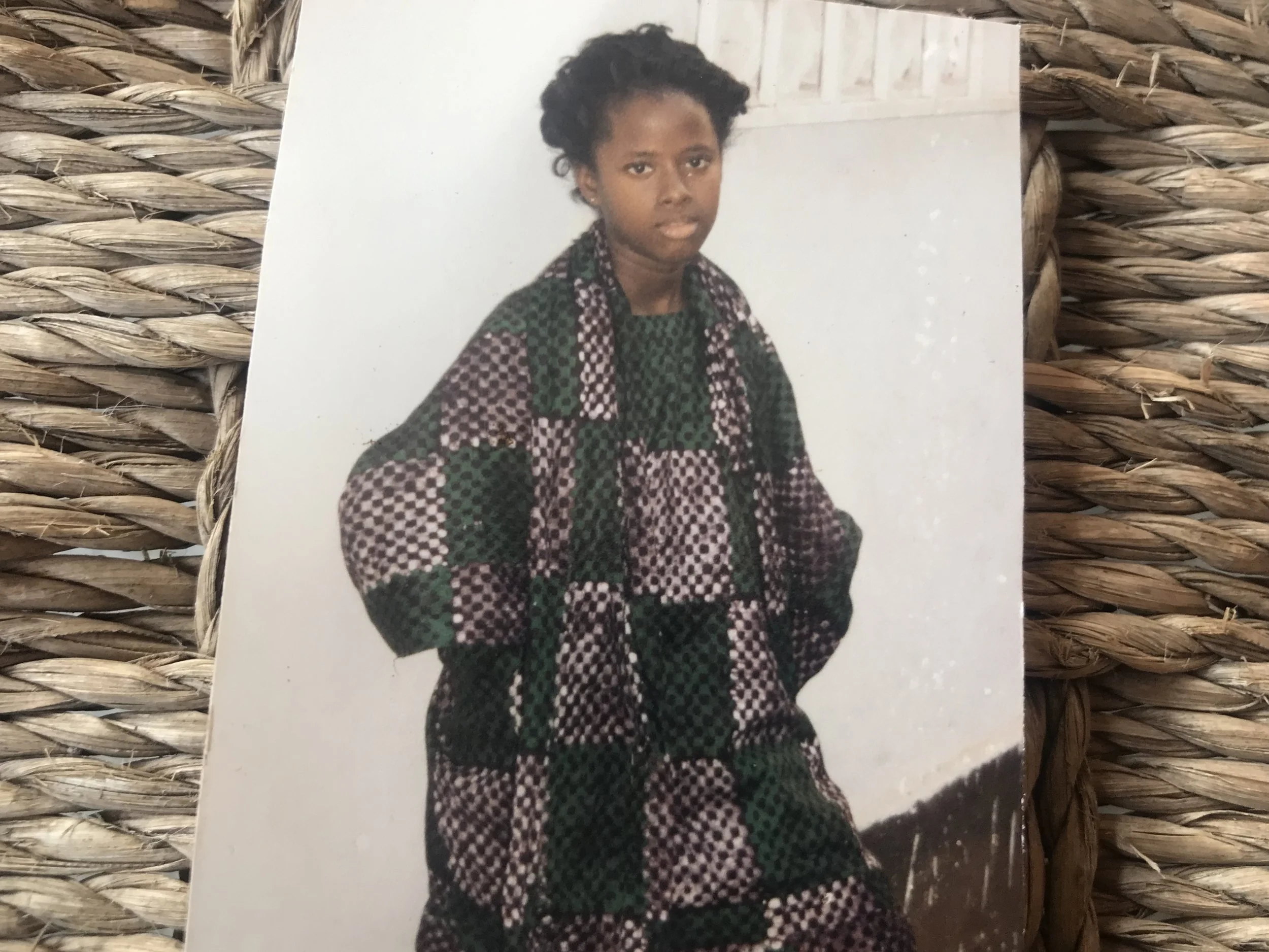Single African Female on a roadtrip from Sierra Leone to Liberia what could go wrong?
In May I got into a 4x4 in my compound in Banana Wata committed to making it across the border to Liberia before it closed for the day. I heard it could be done in 8 hours. We left at 9am so by my calculations we could be at the border by 5pm. I was shooting a travel series for my TV Show. We (my crew of two, and the driver) drove first to Bo. There we went to the Bo Lorry Park where I got into basta palava (read as English speaking argument in Sierra Leone’s most education proud metropolis) with some drivers.
We stopped at the Lorry Park to get directions for the way to the border. Following my instructions on documenting my every move, my videographer got out of the car before I did. He moved around to capture me getting out of the car. I walked over to ask some men for permission to film them as a part of our documentary, and for directions to the border. Before I could open my mouth this tall, burly man got up yelling in big-big Bo Town English.
“What kind of effrontery is this? Why are you filming us? You are in violation of our rights?”
Provoked and inspired by the first accuser, several other drivers began to speak. All of them in English, all of them at the same time. I was the only woman there. My crew including the driver versus now about a dozen drivers, at the Bo Town Lorry Park, less than a month after a Bo School educated president was sworn in as leader of the Republic.
We argue tay! English vs. English! I refuse to let down when they asked for an apology for filming them, and they refused to accept that they jumped to a conclusion. A normal Sierra Leonean woman would have perhaps noticed that they were outnumbered, but I had just survived a litany of online assaults for being vocal about the need for a change of administration. If the mammy cuss online did not kill me, a bunch of over-zealous English speaking Bo Town Lorry Park drivers were not going to pour sand in my garri.
Someone suggested we delete whatever we had recorded, and hand them my camera. I was like not happening. Then someone made a point to remind me of my gender, “Yu na uman” as if I wasn't aware. Listen I was prepared to speak English to the death at that Lorry Park, but not a single word of it would have been remorse or regret for doing my job. I even still had my press credentials for the elections, and it was still valid. Again I was ready.
My driver Ahmed, who came with the car we hired for the astronomical price of $400 just to drop us at the border brought me back, by whispering that the border was going to close if we didn’t leave. Right? I didn't come here for this. I have to get to Liberia.
I quickly lowered my voice. I allowed the men on my crew to apologize without interrupting. They got the directions, and we got into the car. I felt an instant urge to make “baboon yai oh,” as the driver pulled past the band of arguers who had spoiled my shoot, but I insulted them under my breath instead. I am a mature person.
We left Bo towards Kenema, and passed a sign that read Sulima, it reminded me of years before when I heard that oil had been found offshore there and there was much talk of it.
The road to Liberia starts first as the Bo-Zimmi Highway, and that changes to the Trans Africa Highway (TAH-7). It is supposed to be all paved on every side to connect all the African countries but oh ya. So many years of neglect on the Sierra Leonean side has left much of it unfinished. In May the rains had already begun so in some parts it was like a scene in a James Bond movie driving through a pool. As we drove on, however, we saw big construction trucks. The closer we got to Zimmi the better the road got. The European Union is paying for the highway and a bridge to connect Bandajuma to Zimmi.
By this point, I was fatigued. Although the car, a Toyota Landcruiser was perfect for this kind of journey, the body can only take so much. My spirit though was the opposite. I was excited and giddy. Every time I’m on the road exploring a part of the continent I have never seen before my heart swells.
It was about 2:45pm when we made it to Bandajuma to cross over to Zimmi. The Mano River flows between Zimmi and Bandajuma, and the only way to cross is via a raft that is pulled by locals from one end to the other. Cars line up on both sides of the river and get pulled across 2-3 at a time depending on the weight of the vehicles. Thankfully a mechanized version of this has been installed by CSE, the company constructing the EU funded road project. I was able to convince one of the Monsieurs who is Senegalais to allow us to get a lift on theirs so we could make time on the crossing.
After grumbling about the fact that no one spoke French in Zimmi, he said he would give us a lift. I was proud of myself. As I was walking back to the crew, my heart dropped. Yup! I had to use the toilet. If you have never traveled by road in West Africa, then you can not even begin to imagine the horror, no HORROR of needing to go on the road.
I had been careful, I ate ‘cassada brade’ but I had barely had water. Which is no small thing, ok? I knew before I asked if there was a toilet that there was no toilet. After we crossed over the Mano River, I was shown a vast bushy area where I could go “ease myself.” I reached for the Pampers wipes. I marched with confidence as if no one was looking, or knew that I was heading to the bush to do something.
Note to self: learn how to pee standing up.
I could see other people where I decided to pee, and they could see me. I didn't want to go too far in and get bitten by a snake or worse, step in some other traveler’s left over from ease.
"My bum really isn't that special anyway. Just because someone sees your bum 'butu' doesn't mean anything."
Those were the thoughts that ran in my head as I tried not to pee on myself. And oh the glory and pep in my step when I had finished. So free I was. I made a beeline for the jelly sellers and ordered three jellies. They were so sweet! Unlike in Freetown, here in Zimmi the jelly sellers were women, they did not speak Krio but Mende. Some children tried to sell palm oil to me. I didn't want any. I drank so much jelly my belly hurt but kokobeh! I finished it all.
We paid up, reloaded, and headed for the border. We passed a Zimmi checkpoint that indicated that this was supposed to be a significant point of entry into Sierra Leone if trade between Liberia and Sierra Leone was bustling. It was all quiet there. From Zimmi to Bo Waterside Liberia-Sierra Leone border, it is 27 miles. What no one tells you is that those are the worst 27 miles on the entire stretch of the highway. It took us two hours to drive the 27 miles to the border. As we got closer to the border we saw miles and miles of rubber plantations. Liberia has been exporting rubber to the US since 1926.
We arrived at the Sierra Leone side of the border at 5pm. I didn't have my passport for this journey. I had applied for a visa to the UK, and it had still not arrived. As an ECOWAS citizen, I am supposed to be able to cross over the border with my ID card. I figured this was a good a time as any test it out.
At the immigration post, I explained my situation. I was informed that I could not go across with my Sierra Leone issued ID card. I needed to get an Emergency Travel Certificate (ETC). I asked the post officer why it was that my ID could not take me across and I was informed that the ECOWAS was working on a regional ID that would allow for more seamless integration. I just said “polly ein last word….O”. Same ECOWAS has been bringing us single currency for the region called the ECO for some 20 years, so I was not going to hold my breath for ECOWAS ID.
I asked the post boss if we could interview him on camera talking about the border crossing. He said he couldn't do it.
“My boss in Freetown will say, 'Ah did I ask you to talk'?”
As he said this, we both laughed hard. When I told him that technically an ID should be enough to take us across he started bad mouthing Liberians. He said you have to take this ETC oh. Liberians are bad people. We are very friendly over here. If you cross without this, they will harass you. I just said nothing and waited for him to finish, but I wasn’t pleased with his scare tactic. I paid 100,000 SLL ($16) for my ETC. There are two questions I had wanted to ask him that I didn’t.
1. Have you ever been to Liberia? 2. Did you cross with you ID and was refused entry?
After immigration for passport control, we moved to the next room, the health post. I showed the health post clerk my yellow fever card. I have had it for several years. He took it and looked it over and exclaimed that he needed to stamp it for cholera. He points to a page in my yellow fever booklet.
“You see where it says other diseases?”
He stamps for no reason other than to waste ink because it was not necessary. Those who don’t have yellow fever cards must pay 20,000 SLL ($2.32) for an instant booklet.
It took less than thirty mins for my crew of two and I to be processed at the post. There was no line. As we were about to walk out of the post a policeman appears and announces that he must search our belongings as this is an international post. I said cool. I ask the crew to take our bags out of the car and hand it over to them to search. Just as they are about to do so, the policeman asks for my ID. He says he wants to verify my nationality, to make sure that I am truly a Sierra Leonean. He checks it and says okay. Happy that I was indeed a true Sierra Leonean he exclaims that he can use his discretion and not search us. He waves us through. We carry our bags to our next car which had come from Monrovia to pick us up at the border, and that was how I crossed into Liberia for the very first time.
It was 5:48pm.
Once we drove across we had to get out of the car and walk to the first immigration post on the Liberian side. Two immigration officers with the red and blue flag on their uniforms, both women, one a captain with short hair checked our papers. She asked what we were coming to do.
"I came to see Liberia." She looked at me and smiled.
"You are welcome to Liberia. Go enjoy yourself in Monrovia." Her accent just like it should be with an americo-palm wine melody. My heart swelled with joy. She stamped us in. I asked if it was okay to film at the Gbo Waterside Bridge and she said no problem.
I stood on the bridge, in my Fulani earrings, and red sneakers. I was so happy to have finally made it to Liberia. I had heard so much, who hasn’t? The same negative narratives that exist about Liberia exist for Sierra Leone. We are like two sides of the same coin. If the narratives about Sierra Leone that are peddled to the world are one-sided, I was certain it was the same for Liberia
I couldn’t wait to see it all.
“Hello and Welcome to another edition of the Vickie Remoe Show. I am at the border that separates Sierra Leone and Liberia....”

